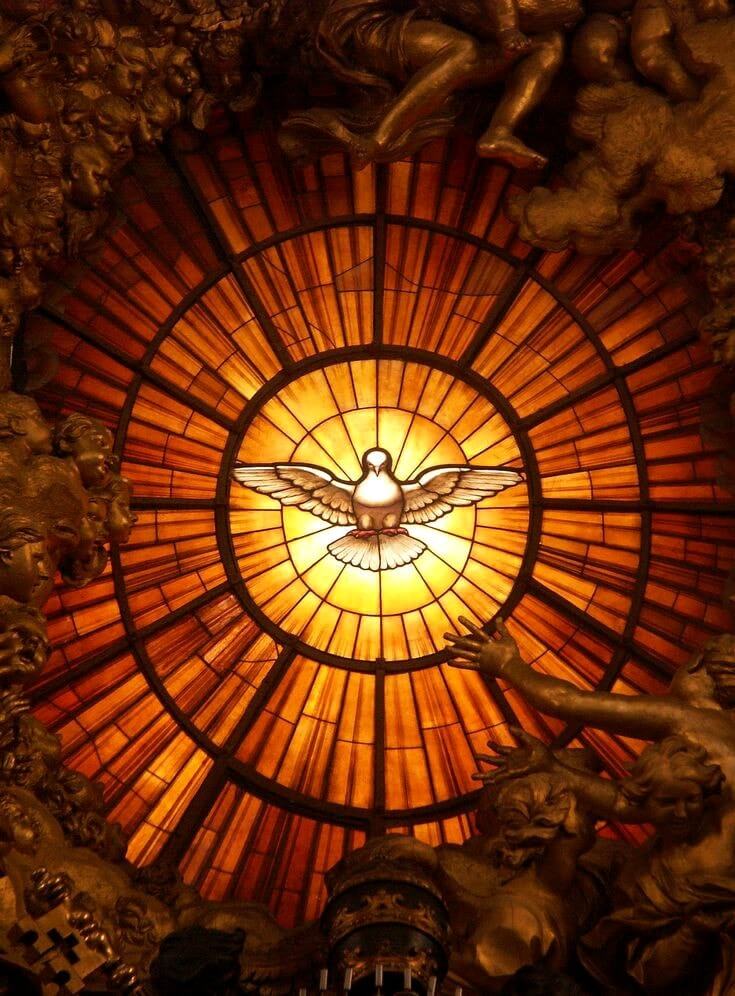
Jn. 20:19-23
Bethlehem was God with us, Calvary was God for us, and Pentecost is God in us (Robert Baer)
Today we commemorate the solemn beginning of the Church. The feast of Pentecost reminds us that the Church is not a mere human institution. Its origin, sustenance, and end are willed and controlled by the Lord. In the gospel passage, we see that before ascending into heaven, Jesus breathes the Holy Spirit into his apostles. It was a foretaste of the Pentecost experience. In the book of Genesis, we see Abba Father breathe life into Adam: “Then the Lord God formed man from the dust of the ground and breathed into his nostrils the breath of life, and the man became a living being.” (Gen. 2:7) Similarly, the disciples who were spiritually dead became alive again when they received the Holy Spirit. By giving them the Holy Spirit, Jesus gives them the divine authority to forgive their fellow brethren. When we glance through the scriptures, we never see human beings having the authority to forgive someone else’s sins. When Jesus gave the Holy Spirit, he handed over this grace to his disciples.
We may think that if Jesus had already given the Holy Spirit, what is the need of a separate Pentecost day? It implies the significance of the person of the Holy Spirit in salvation history. The Holy Spirit is not a subservient reality to Abba Father and Jesus. The Holy Spirit is equal to the Godhead, which proceeds from the Father and the Son. On Pentecost, we see the power of the animating role of the Holy Spirit. The disciples who never understood the person of Jesus, who never believed him fully, and who never acknowledged him became his courageous witnesses after the Pentecost experience. Even as they shed their own blood, we see a new humanity being born, empowered by the Holy Spirit, and burning with fire for Jesus. At the Tower of Babel, God scattered humanity by changing their language. Here we see that though they speak different languages, the Holy Spirit unites them in Jesus. The first proclamation of Peter led three thousand men into repentance, and they joined the church. We see Peter, who doubted and denied Jesus three times, become a real rock by the grace of the Holy Spirit.
In the second reading taken from the letter of St. Paul to the Corinthians, we see that Paul says no one can say Jesus is the Lord except in the Holy Spirit. St. Paul is not making a statement in the air; rather, he speaks from his own experience, having once been the zealous preacher and missionary apostle of Jesus because he was filled and driven by the person of Jesus. As we reflect on the gospel passage today, let us get back to the roots of Christianity and recognize the role of the Holy Spirit in our faith journey. If we encounter problems in the church like lack of witness and the evil of disunity, it is because we, the members of the church, forgot the animating role of the Holy Spirit. Let us pray earnestly and prepare ourselves for a personal Pentecost experience in our faith journey so that we may become courageous witnesses of Christ, who is ever available to build and unite the kingdom of God here on earth.